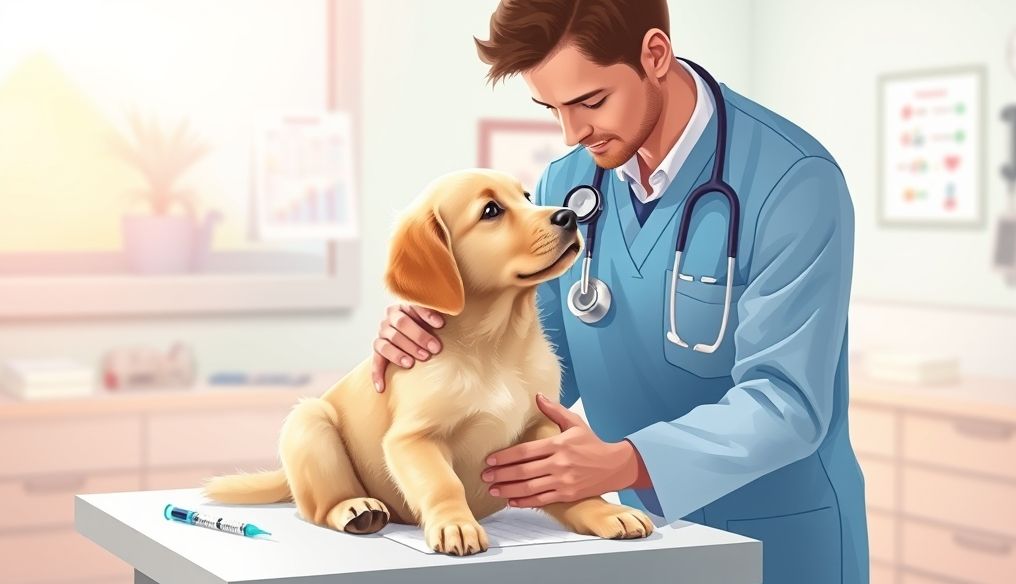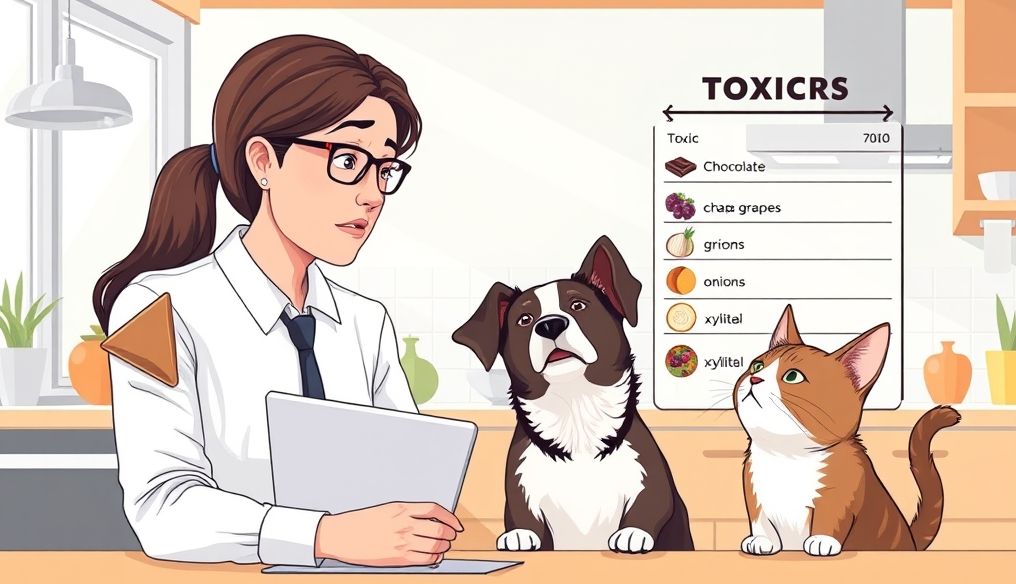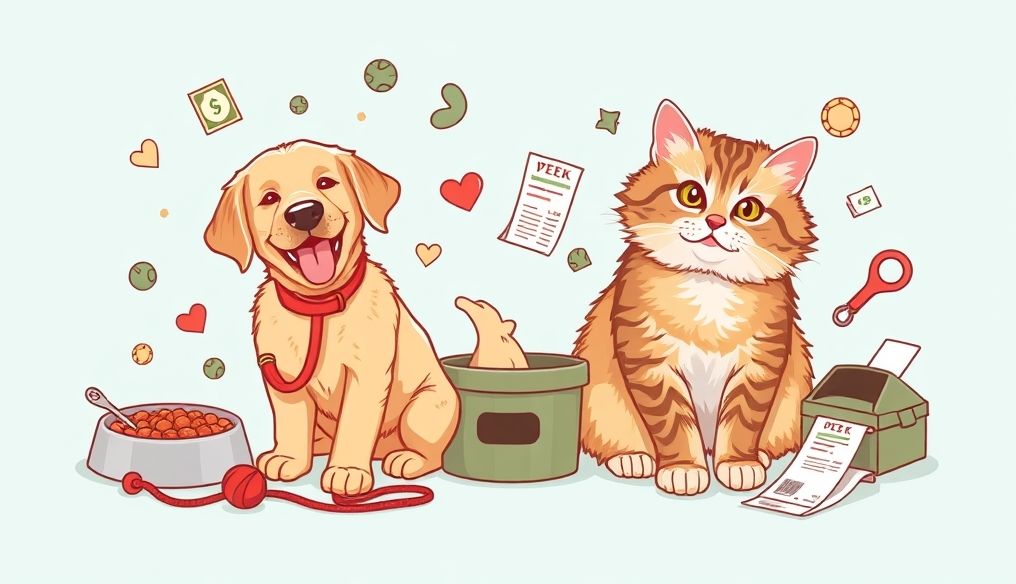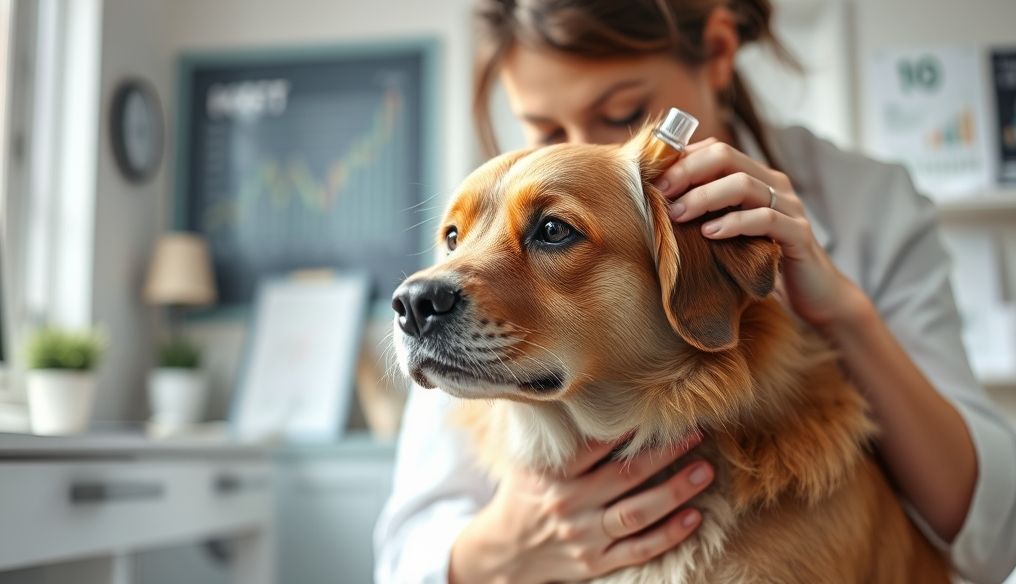Why are Vaccinations and Regular Check-ups Crucial for Pets?
Pets, whether cats, dogs, or others, are an integral part of our families. Caring for them requires attention to their health and safety, and vaccinations and regular check-ups play a crucial role in this aspect. These preventative measures are not just recommendations, but a necessity to maintain the health of our pets and protect them from serious diseases.
Chapter 1: Why are Vaccinations Necessary?
Vaccinations work by stimulating the immune system of the pet to produce antibodies that fight infectious diseases. When the animal is later exposed to the same disease, its body is ready to fight it quickly and effectively. Without vaccinations, pets are susceptible to serious diseases that can be fatal.
- Protection from Viral Diseases: Vaccinations protect against diseases such as rabies, canine hepatitis, canine parvovirus, canine infectious tracheobronchitis, calicivirus, herpesvirus, and panleukopenia in cats.
- Protection from Bacterial Diseases: Some vaccinations also protect against bacterial diseases such as leptospirosis.
- Preventing the Spread of Diseases: Vaccinations help prevent the spread of diseases among other pets and, in some cases, to humans.
Chapter 2: What are the Essential Vaccinations for Dogs?
Essential vaccinations for dogs depend on the dog's age, lifestyle, and the geographical area in which it lives. However, there are some vaccinations that are considered necessary for all dogs:
- Rabies Vaccination: Mandatory in most countries and protects against this fatal viral disease transmitted through saliva.
- Parvovirus Vaccination: Protects against this highly contagious viral disease that causes diarrhea, vomiting, and severe dehydration.
- Distemper Vaccination: Protects against a viral disease that affects the respiratory and nervous systems.
- Canine Hepatitis Vaccination: Protects against a viral disease that affects the liver.
- Parainfluenza Vaccination: Protects against a viral disease that causes coughing and nasal inflammation.
Chapter 3: What are the Essential Vaccinations for Cats?
Essential vaccinations for cats include:
- Rabies Vaccination: As in dogs, necessary to protect against this deadly disease.
- Calicivirus Vaccination: Protects against this viral disease that causes upper respiratory tract infection.
- Herpesvirus Vaccination: Protects against this viral disease that causes upper respiratory tract infection and conjunctivitis.
- Panleukopenia Vaccination: Protects against this highly contagious viral disease that causes a decrease in white blood cell count, diarrhea, vomiting, and severe dehydration.
Chapter 4: When Should Vaccinations Start?
Vaccinations usually begin at 6-8 weeks of age for puppies and kittens. A series of booster vaccinations are given at regular intervals to ensure strong immunity is built. After that, booster vaccinations are given annually or every three years, depending on the type of vaccination and local regulations.
Chapter 5: The Importance of Regular Check-ups
In addition to vaccinations, regular check-ups are essential for early detection of potential health problems. The veterinarian can perform a thorough examination of your pet, including checking the heart, lungs, teeth, and skin. Blood and urine tests can also be performed to detect signs of internal diseases.
Chapter 6: Benefits of Regular Check-ups
- Early Detection of Diseases: Regular check-ups can detect diseases in their early stages, when treatments are more effective.
- Preventing Worsening Health Problems: The veterinarian can provide advice on nutrition, exercise, and other health care to help prevent worsening health problems.
- Improving the Quality of Life of the Pet: By detecting and treating health problems early, regular check-ups can improve the quality of life of your pet and extend its lifespan.
- Saving Money in the Long Run: Early detection of diseases can save money in the long run by avoiding costly treatments in the future.
Chapter 7: What Does a Regular Check-up Include?
A regular check-up usually includes:
- Reviewing Medical History: The veterinarian asks about your pet's medical history, including previous vaccinations, illnesses, and allergies.
- Comprehensive Physical Examination: The veterinarian examines your pet's heart, lungs, teeth, skin, eyes, and ears.
- Weight Check: Your pet's weight is measured to assess its overall health.
- Blood and Urine Tests: Blood and urine tests may be performed to detect signs of internal diseases.
- Fecal Examination: The stool is examined for intestinal parasites.
Chapter 8: How to Choose the Right Veterinarian?
Choosing the right veterinarian is an important decision. Look for a veterinarian who is experienced, skilled, and compassionate. Make sure you feel comfortable communicating with the veterinarian and that you trust their judgment. You can ask for recommendations from friends and family or search online for veterinarians in your area. Visit several veterinary clinics before making your decision.
Chapter 9: Additional Tips for Maintaining Your Pet's Health
- Provide a Balanced Diet: Feed your pet high-quality food specifically designed for their age, size, and activity level.
- Provide Plenty of Exercise: Make sure your pet gets plenty of exercise to maintain a healthy weight and strengthen their muscles and bones.
- Provide a Clean and Safe Environment: Keep your pet's environment clean and safe to prevent the spread of disease.
- Provide Love and Attention: Give your pet plenty of love and attention to promote their mental and emotional health.
Chapter 10: Conclusion
Vaccinations and regular check-ups are an investment in the health and happiness of our pets. By taking these preventative measures, we can protect our pets from serious diseases, extend their lives, and improve their quality of life. Always consult with your veterinarian to determine the appropriate vaccination and check-up schedule for your pet.




